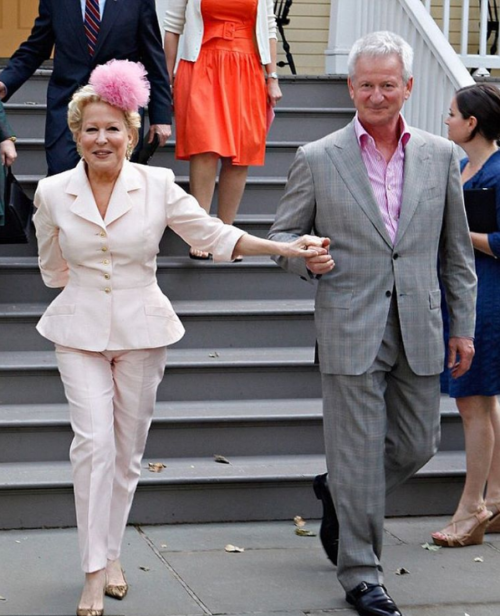The Temple News
Electric Factory owner is giving back to Temple to ‘honor’ his beginnings
by Patrick Bilow 06 February 2018
Before opening the Electric Factory in 1968 and becoming good friends with musician Bruce Springsteen and actor Billy Crystal, Larry Magid was a “dyed-in-the-wool, rock ‘n’ roll rebel” who booked small bands for fraternity parties at Temple and the University of Pennsylvania.
“I love music,” said Magid, a 2012 honorary alumnus. “It was on all the time in my house growing up, on the radio, on the TV, but this was where my career in music really began. … I started asking myself, ‘How do I give back to where I came from?’”
Magid, who has owned the Electric Factory on 7th Street near Callowhill for 50 years, recently made a seven-figure pledge to Temple in the form of 11 new scholarship funds. They will be for students from the Philadelphia area in need of financial assistance who are enrolled in the Boyer College of Music and Dance, Klein College of Media and Communication, School of Theater, Film and Media Arts or the Lewis Katz School of Medicine.
Magid wanted to give back to the art programs but was also impressed with the advancement and research at the medical school.
The scholarships bear the names of popular performers including three $1 million scholarships in honor of Bruce Springsteen, Billy Crystal and Bette Midler — legendary performers who have proven their dedication to charity through donations, Magid said.
“I never thought I could afford to go to college, but Temple took a shot with me,” Magid said. “And if even one other person could get that same opportunity, well then it’s worth it to me.”
Originally from Cobbs Creek in West Philadelphia, Magid was able to afford tuition at Temple on a Veterans Affair allowance, as his late father served in the military. He found a mentor in Chuck Sherman, a professor who was also a jazz disc jockey, but Magid spent three years in and out of classes for financial reasons.
Magid finished a business and management certificate through Temple’s business school in 1964. Then, he took a job with General Artists Corporation, a music booking agency in New York City.
In the late 1960s, when Magid was in his early 20s, he would return home on the weekends to see friends and family and often visited the Showboat, a jazz club at Broad and Locust streets that hosted prominent musicians like John Coltrane and has since been replaced by row homes.
The owner of Showboat, Herb Spivak, sought Magid’s advice on getting involved in the popular rock ‘n’ roll genre, and soon after, the two co-founded the Electric Factory, which was originally located at 22nd and Arch streets. Its original location, where Magid worked as its first general manager, closed in 1973 and the venue reopened at its current spot in 1995.
Jim Crawley, a 1994 law alumnus and Temple’s vice president of institutional advancement, grew up in Levittown, Pennsylvania, and has always known of the Electric Factory. Crawley later got to know Magid during his two terms on the Board of Trustees.
“[The Electric Factory] is a key part as to why Philadelphia is recognized as a mecca of entertainment and it’s all due to one guy who had a vision,” Crawley said. “What Larry has done with the Electric Factory is nothing short of amazing.”
At the time, the club was an early proponent of rock ‘n’ roll, including Philadelphia’s rhythm-and-blues style of music.
“I love Philadelphia,” Magid said. “It’s a great town, it’s comfortable and I knew the music that the kids in Philly wanted, so I came back, and the rest is history.”
To Magid, the grand opening of the Electric Factory was the best night of his life. People filled the club, which was once an old warehouse and later a bakery, after paying a $3 cover charge. The Chamber Brothers, a Los Angeles rhythm-and-blues band, headlined and was followed by the Philadelphia rock band Woody’s Truck Stop.
Magid said people instantly loved the Electric Factory because it experimented with different genres, from jazz to rock ‘n’ roll.
“People were dressed in costume, the hippies were there, a few socialites showed up and the place was packed,” Magid said. “I was in such awe of what was happening, and it changed my life.”
He parlayed this success to start The Quaker City Rock Festival, which debuted on Oct. 20, 1968, featuring bands and musicians like Janis Joplin, Buddy Guy and Moby Grape at the Electric Factory. He began working with more popular bands across the country, and also produced Broadway productions.
Despite traveling to other cities, he’s remained rooted in Philadelphia.
“You have to honor your beginnings,” Magid said. “Being a Philadelphian and a Temple guy, I want to give people an opportunity, especially in the arts field where I got my big break. I hope more people feel the way I do and return to their roots to help people out.”







